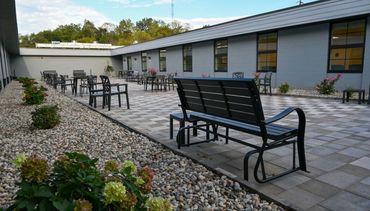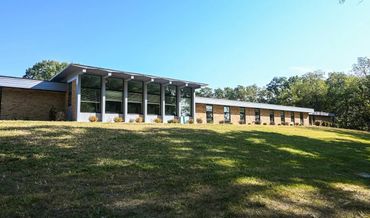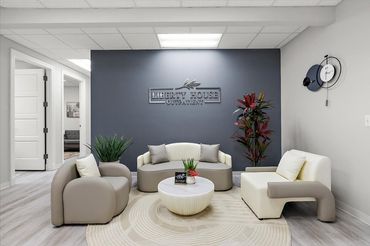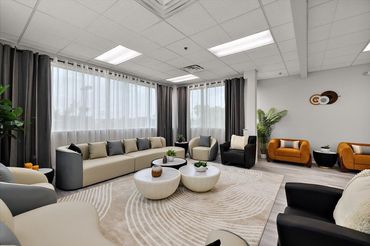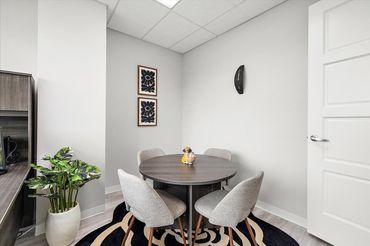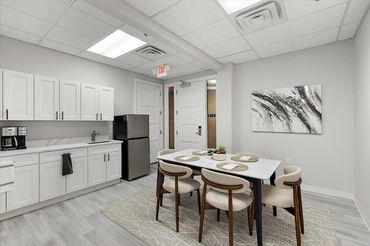
Cognitive Behavioral Therapy (CBT) for Addiction in Michigan
Find Cognitive Behavioral Therapy (CBT) treatment for addiction in Michigan. CBT helps treat addiction by identifying triggers, changing harmful thought patterns, building coping skills, and preventing relapse through improved self-awareness and decision-making. Find CBT treatment centers in Michigan today!
Treatment Centers in Michigan
Open to Travel? Check out Top-Rated Options
All Treatment Centers in Michigan
Are You Covered For Treatment?
- Detroit Rehabs
- Grand Rapids Rehabs
- Flint Rehabs
- Lansing Rehabs
- Ann Arbor Rehabs
- Kalamazoo Rehabs
- Muskegon Rehabs
- Saginaw Rehabs
- Holland Rehabs
- Brighton Rehabs
Rehab Insurance Coverage in Michigan
Rehab Centers in Michigan
Information About Rehab in Michigan
Latest Reviews
Latest Reviews of Rehabs in Michigan
St. Mary Mercy Livonia
Loved one enjoyed the meal plan. No support for patients who are disoriented. It was a great facility but the patients can get abusive and in your face. Loved one was approached by prisoners while disoriented and was intimidated.
Brighton Center for Recovery
Therapists and staff were very helpful and professional. Food service was less than satisfactory. Facilities was adequate. Court ordered attendees distracted those that were serious about recovery.
About Michigan
Michigan, situated in the Great Lakes region of the United States, is a state of remarkable diversity and captivating beauty. With a population of over 10 million residents,1 it ranks as the tenth most populous state in the nation. Known as the “Wolverine State” or the “Great Lakes State,” Michigan boasts an array of unique attributes. Its geography is defined by its four peninsulas, with the Lower Peninsula being the most populous and the Upper Peninsula offering rugged wilderness and stunning natural landscapes.
The state’s diverse culture is influenced by its rich history, as it was once inhabited by Native American tribes and later became a hub of manufacturing and innovation. Michigan is renowned for its automotive industry, home to the famous Detroit-based automobile companies. Additionally, the state is celebrated for its breathtaking scenery, including the Great Lakes, picturesque beaches, expansive forests, and charming small towns. Michigan’s residents take pride in their sports teams, especially the Detroit Tigers, Detroit Lions, Detroit Pistons, and Detroit Red Wings. From bustling cities to serene rural areas, Michigan offers a dynamic blend of urban excitement and natural splendor, making it a truly captivating state to explore and call home.
Addiction in Michigan
The state has been grappling with the impact of substance abuse across various demographics. According to Michigan’s Department of Health and Human Services, Michigan has seen an alarming rise in drug overdose deaths in recent years. In the span of just one year, from 2019 to 2020, Michigan experienced a concerning rise in opioid overdose death rates observed among all sex, age, and race groups. Shockingly, the age-adjusted rate of opioid overdose deaths surged by 25%, escalating from 18.1 overdose fatalities per 100,000 residents in 2019 to 22.6 in 2020.2
Unfortunately, this number seems to be increasing. The Centers for Disease Control and Prevention reported 3,089 overdose fatalities in Michigan in 2021, bringing the overdose death rate to 31.5 fatalities per 100,000 Michigan residents.3
Addiction Treatment in Michigan
Michigan offers a range of addiction treatment options to cater to diverse needs and preferences. These options include detox, inpatient rehabilitation, and outpatient programs.
Detox: Detox programs focus on helping individuals safely withdraw from drugs or alcohol while managing withdrawal symptoms. They provide medical support and supervision during this critical phase of the recovery process. Detox is typically the first step before transitioning to further treatment.
Inpatient Treatment: Inpatient treatment involves residential rehabilitation where individuals live at a facility dedicated to addiction recovery. These programs offer a structured environment with 24/7 support and intensive therapy. They provide a range of evidence-based treatments, such as individual counseling, group therapy, behavioral therapies, and holistic approaches like yoga or meditation.
Outpatient Treatment: Outpatient programs, like IOP and PHP, provide flexibility, allowing individuals to live at home while receiving treatment. They are suitable for those with a supportive and stable living environment. Outpatient treatment involves regular therapy sessions, counseling, educational programs, and support groups.
Many of the above-mentioned treatments and programs in Michigan offer specialized care and therapies to address specific needs. These may include dual diagnosis treatment for co-occurring mental health disorders, trauma-focused therapy, gender-specific programs, and holistic or alternative therapies like art or music therapy.
Additionally, Michigan provides options for luxury rehabs that offer upscale amenities and personalized care in a serene environment. These facilities often provide additional services such as gourmet meals, spa treatments, and recreational activities. Private rehabs are also available for those seeking individualized treatment that is funded through self-pay. These facilities may provide exclusive services and accommodations tailored to the individual’s preferences and needs.
To find a drug and alcohol rehab in Michigan, you can utilize our online search tool which helps locate treatment facilities near you. This tool also provides information about services offered, treatment approaches, and contact details, facilitating the process of finding the most suitable treatment option.
How Much Does Rehab Cost?
Most insurance plans offer coverage for substance abuse and mental health services, including detoxification, inpatient rehab, and outpatient treatment. However, the extent of coverage can vary depending on your insurance provider and specific plan. To determine how addiction treatment will be covered by insurance, it is important to contact your insurance provider directly. They can provide information on your policy’s benefits, including deductibles, copayments, and any limitations or restrictions on treatment types or facilities.
If you are without insurance coverage, there are still options available. Michigan offers state-funded treatment centers that provide assistance to those who are uninsured or have limited financial resources. These centers aim to ensure that individuals can access the help they need despite financial constraints. State-funded treatment centers often offer a range of services, including detoxification, inpatient rehab, and outpatient programs, and may have sliding fee scales based on income to make treatment more affordable.
In-Network Insurance Options
Length of Stay in Rehab
Addiction treatment programs in Michigan typically offer a range of duration options to suit different individual needs. The most common program durations are 30 days, 60 days, and 90 days. These programs may include a combination of detoxification, counseling, and behavioral therapies to help individuals overcome their addiction and develop strategies to maintain sobriety.
In addition to these standard program durations, long-term rehab is another option available for those with more severe addiction or who have relapsed after completing a shorter program. Long-term rehab programs typically last between 6 months to 2 years, depending on treatment needs and the specific facility/program. These programs provide a structured, supportive environment that allows for uninterrupted focus on recovery and developing the necessary skills and coping mechanisms to maintain sobriety in the long run.
Recovery Starts Today
In the journey towards recovery from addiction, finding the right treatment program is of paramount importance. Tailoring the treatment to meet your individual needs and circumstances increases the likelihood of achieving long-term sobriety and a fulfilling life. Whether it’s selecting the appropriate level of care, exploring therapy options, considering the duration of treatment, or understanding payment options, thorough research and seeking professional guidance can make a significant difference. By investing in the right addiction treatment that aligns with your unique needs, you give yourself the best chance for lifelong recovery and the opportunity to reclaim a healthier, happier future.
Sources:
- United States Census Bureau. QuickFacts-Michigan. July 1, 2022.
- Michigan Department of Health and Human Services. Bureau of Specialty Behavioral Health Services. Opioid Overdose Deaths in Michigan, 2000-2020. December 2020.
- Centers for Disease Control and Prevention. Drug Overdose Mortality by State.
